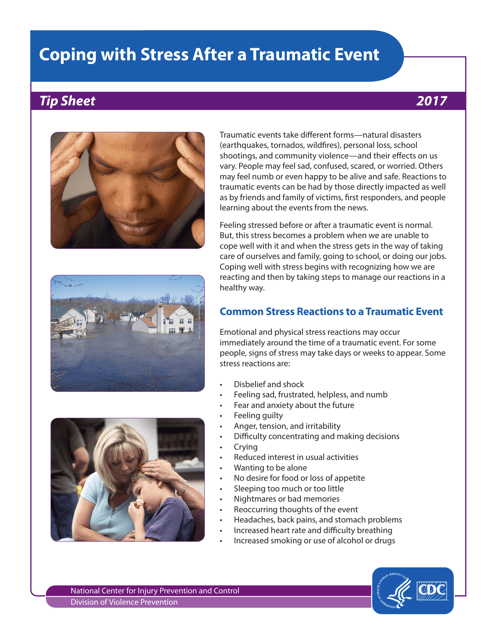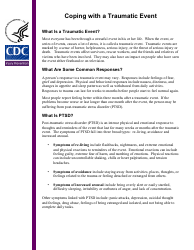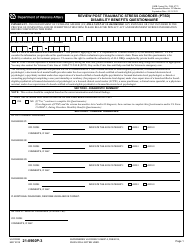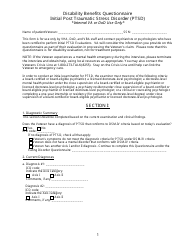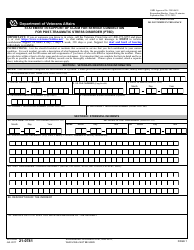Coping With Stress After a Traumatic Event
Coping With Stress After a Traumatic Event is a 2-page legal document that was released by the U.S. Department of Health and Human Services - Centers for Disease Control and Prevention and used nation-wide.
FAQ
Q: What are some common reactions to a traumatic event?
A: Some common reactions to a traumatic event include shock, numbness, sadness, anxiety, fear, and anger.
Q: How can I cope with stress after a traumatic event?
A: Some strategies to cope with stress after a traumatic event include talking to someone you trust, seeking professional help if needed, practicing self-care, maintaining a routine, and engaging in activities that bring you joy.
Q: Should I avoid talking about the traumatic event?
A: Avoiding talking about the traumatic event may prolong the healing process. It can be helpful to talk about it with someone you trust or seek therapy to process your emotions.
Q: What are some self-care activities that can help me cope with stress?
A: Some self-care activities that can help cope with stress include exercising, getting sufficient sleep, practicing mindfulness or meditation, spending time with loved ones, and engaging in hobbies or activities that you enjoy.
Q: When should I seek professional help for coping with stress after a traumatic event?
A: You should consider seeking professional help if your symptoms persist or worsen, if they interfere with your daily functioning, or if you have thoughts of self-harm or suicide.
Form Details:
- The latest edition currently provided by the U.S. Department of Health and Human Services - Centers for Disease Control and Prevention;
- Ready to use and print;
- Easy to customize;
- Compatible with most PDF-viewing applications;
- Fill out the form in our online filing application.
Download a printable version of the form by clicking the link below or browse more legal forms and templates provided by the issuing department.
